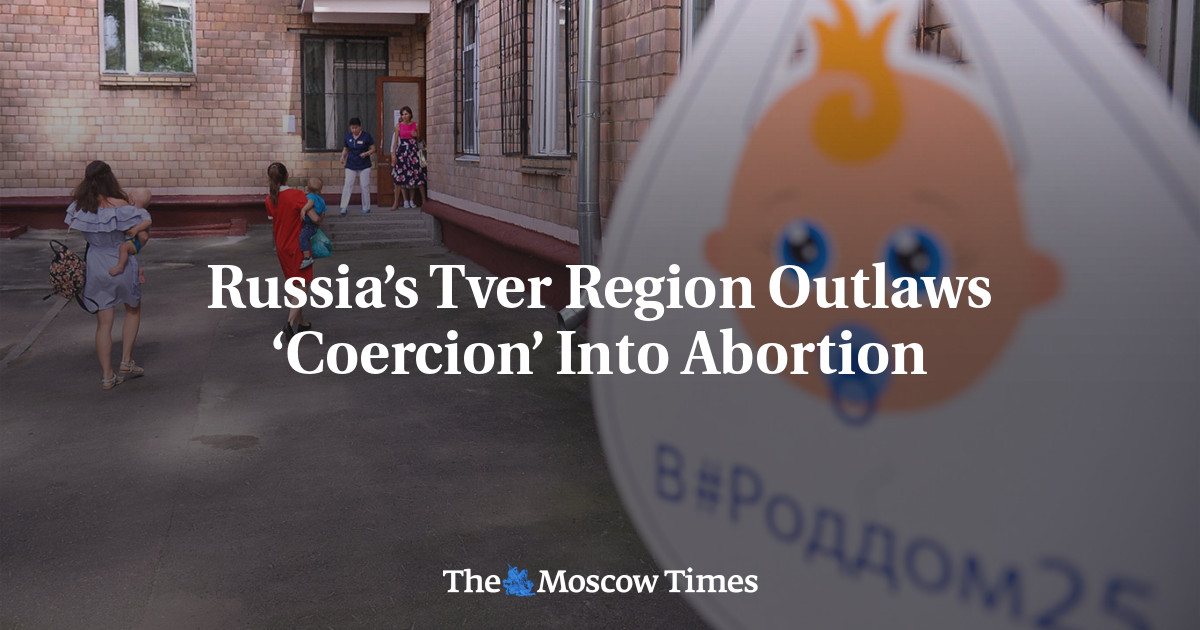
Russia’s Tver region has outlawed the act of “coercing women” into undergoing an abortion, becoming the second such region to do so amid growing concerns about a looming nationwide abortion ban.
“Persuading, suggesting, bribing or deceiving” a woman into having an abortion is now punishable by a range of fines, according to the new regional law adopted by the Tver region’s legislative assembly Thursday.
Offenders can still be held legally accountable even when a woman does not undergo an abortion, according to the law.
Individuals found guilty are subject to fines ranging from 3,000-5,000 rubles ($30-$54). Officials face fines of 25,000-50,000 rubles ($270-540) while legal entities can be fined 100,000-200,000 rubles ($1,000-$2,100) for the same violations.
Central Russia’s republic of Mordovia in August became the country’s first region to outlaw the act of “coercing” women into undergoing abortion.
Russia has historically maintained a liberal abortion policy — with the exception of the Stalin-era ban that lasted until 1955.
But the country’s post-Soviet demographic crisis has prompted officials to weigh various measures for raising birth rates.
At the same time, the Kremlin’s conservative turn, which has coincided with the rising influence of the Russian Orthodox Church in recent years, has raised fears about the future of reproductive rights.
Under Health Ministry orders issued last month, Russian pharmacies will limit the distribution of abortion-inducing pills starting in September 2024 and lasting until 2030.
According to Health Ministry data, the number of abortions in Russia decreased by 3.9% (16,213 cases) from 2021 to 2022.
But amid the war in Ukraine and unprecedented Western sanctions, which have led to increased economic uncertainty and anxiety in the country, Russians were estimated to have purchased 1.4 million medical abortion drugs in 2022, a 60% spike from 2021.